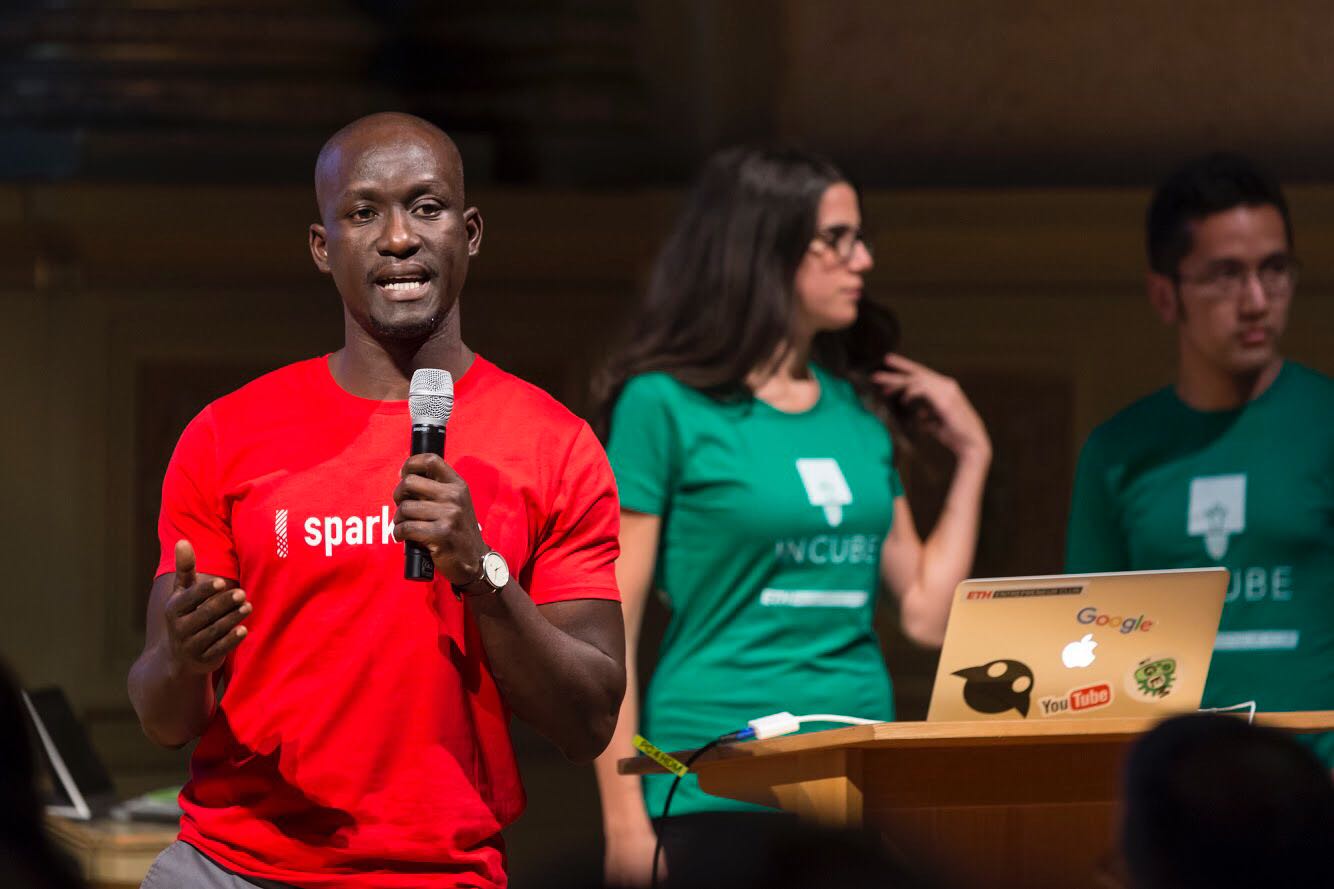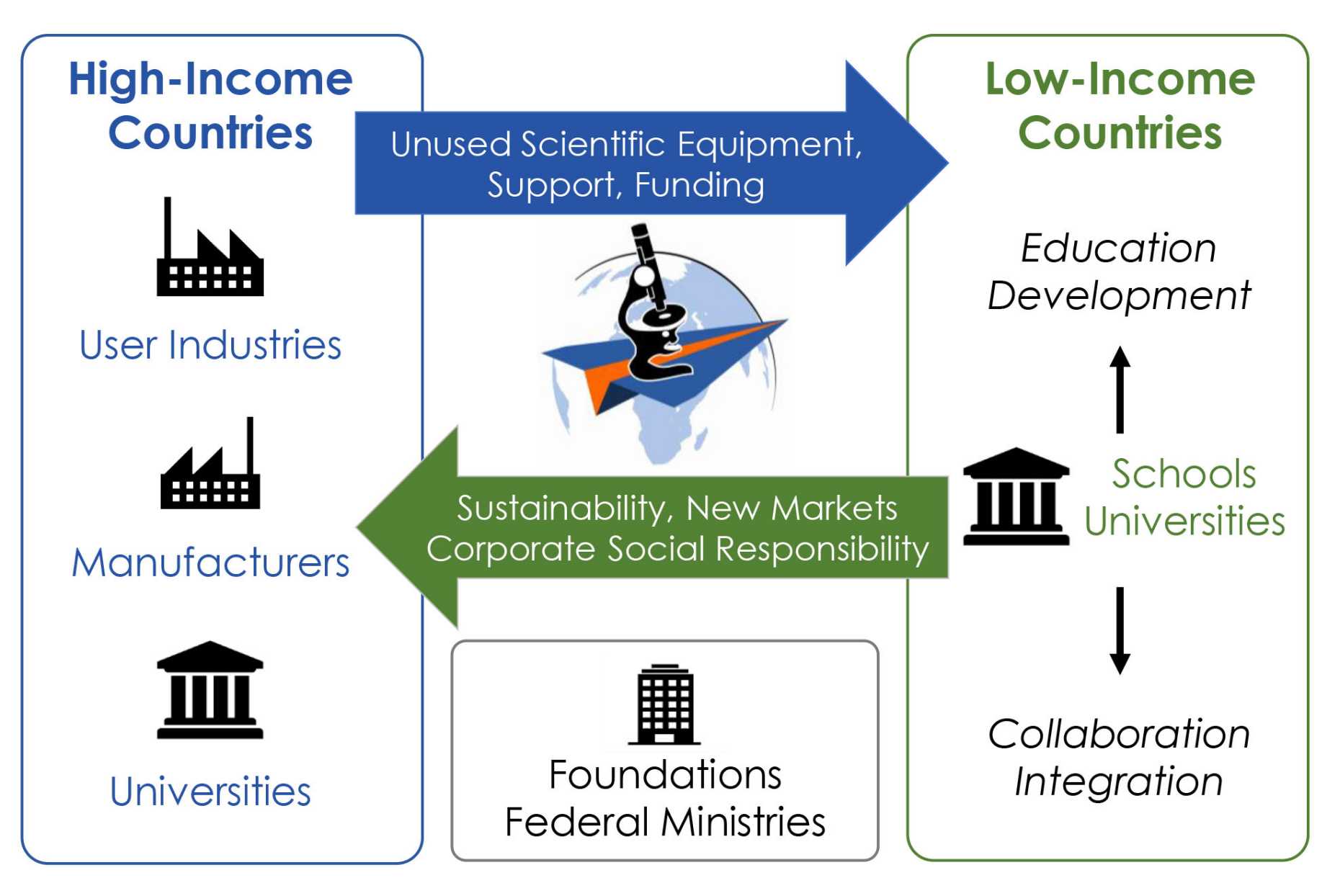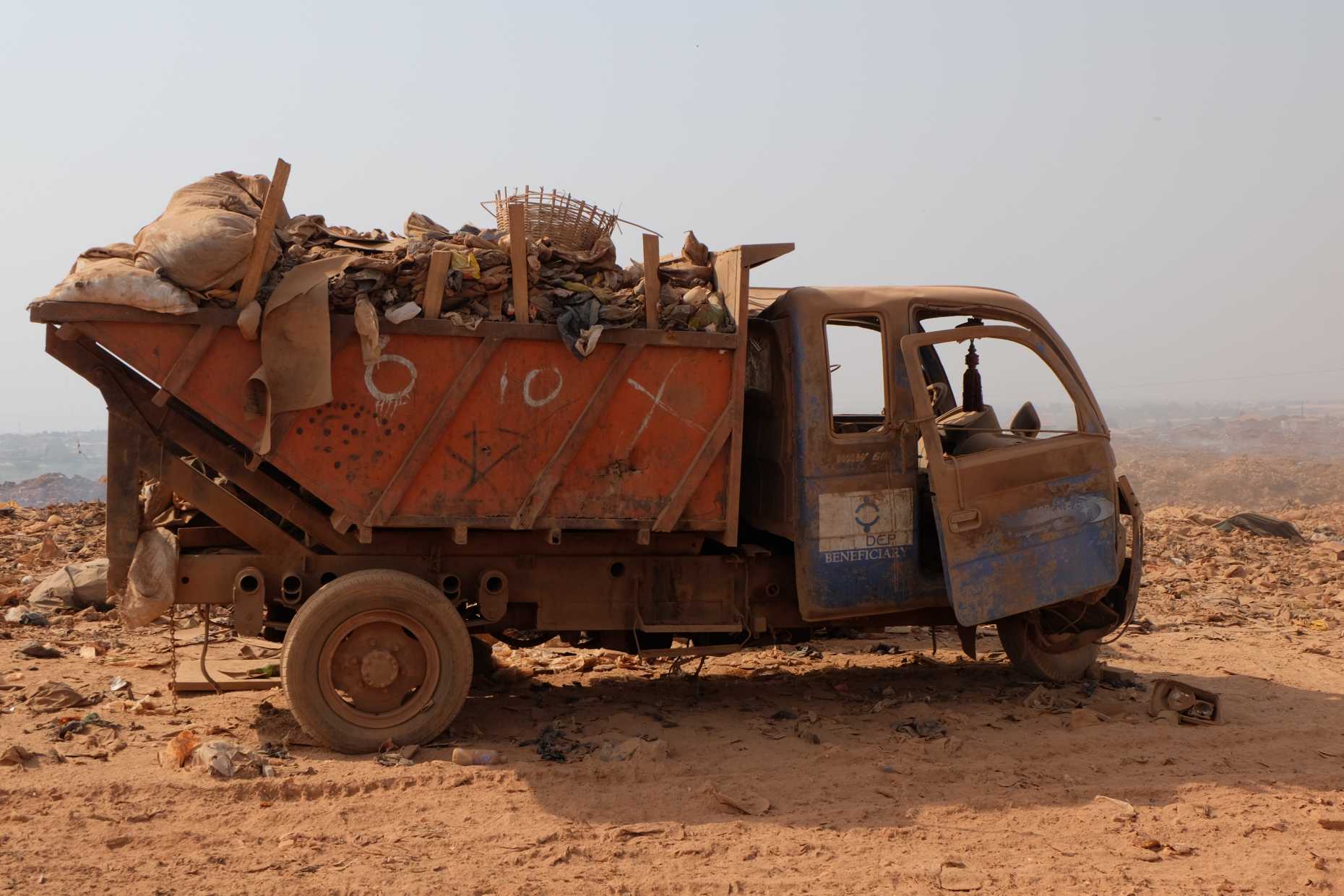Meet Dr. Wilfred Elegba
We would like to introduce you to Dr. Wilfred Elegba, one of our collaborators from Ghana. Wilfred received his doctorate in Plant Science from ETH Zurich in 2018 and is currently working as a research scientist at the Biotechnology and Nuclear Agriculture Research Institute in Accra.
Being passionate about building bridges between Switzerland and Ghana, Wilfred initiated a summer school organized by ETH and KNUST in Kumasi, Ghana. In this interview, he talks about the benefits of an intercultural and interdisciplinary summer school, the biggest development opportunities that researchers from Switzerland and sub-Saharan Africa can collaborate on, and the most common misperceptions people in Switzerland have about Africa.

Tell us more about your background and your experience of moving from Ghana to Switzerland to pursue doctoral studies.
I am a Ghanaian plant scientist. I have a bachelor’s degree (Biological Sciences) from the external page Kwame Nkrumah University of Science and Technology (KNUST), Kumasi. My master’s degree (Nuclear Agriculture - Plant Biotechnology and Mutation breeding) is from the external page University of Ghana, Legon. My pursuit of a doctoral degree is what moved me from Ghana to Switzerland. This happened by a twist of fate. At a conference in Kampala, Uganda in June 2012, I met Hervé Vanderschuren, team leader of the cassava research team, and Wilhelm Gruissem, Professor of Plant Biotechnology, ETH Zurich. Through them, I received the Swiss Government Excellence scholarship to pursue my studies. They later became my supervisors.
Where are you currently employed and what other initiatives are you currently working on?
I am a research scientist at the external page Biotechnology and Nuclear Agriculture Research Institute (BNARI) of the external page Ghana Atomic Energy Commission. At BNARI, my research is targeted at improving food production in Ghana and other low-income countries through the use of biotechnology and mutation breeding techniques. I also train graduate and postgraduate students and fellows from other African countries to acquire practical skills in plant tissue culture and mutation breeding for crop improvement. What’s more, I am a co-founder of the external page EquipSent initiative, which seeks to redistribute scientific equipment from high-income countries to educational and research institutions in low-income countries. EquipSent aims at improving teaching and learning in these countries. I am also involved with the external page Clinton Global Initiative University (CGI U) as an alumni ambassador. My role is to encourage studentparticipation in CGI U activities, build stronger connections between these students and alumni within Ghana and Africa at large. Through this, students in the network are empowered to push forward their social innovation projects aimed at solving global challenges.

What excites you most about your work and the initiatives that you are involved in?
I am excited about mentoring young minds to think outside-the-box, then equipping them with relevant tools to tackle local and global challenges. It is fascinating to see young people from different disciplines believe in themselves, collaborate with each other and act to develop innovative solutions which positively impact the lives of many.
What do you think are the biggest societal and/or technological challenges that researchers in Switzerland and researchers from sub-Saharan Africa can work on collaboratively?
Waste management strategies in sub-Saharan Africa are unsustainable. Africa can learn from the Swiss example through technology transfer and by developing research objectives tailored towards solving Africa’s peculiar waste challenges. Also, increasing demand for food due to rapid population growth is a worldwide challenge. Researchers from both regions can collaborate on how to improve food production using both conventional and cutting edge technologies. Furthermore, there is a significant gap between knowledge acquired in the classroom and its application in solving real societal problems. By promoting industry-led research, we can influence change in education and bridge the gap between learning and its translation into development.
You were involved in initiating the collaborative planning of a summer school between ETH and KNUST. Why did you want to bring ETH week to Ghana and how can students from ETH and KNUST benefit from the summer school in Ghana?
The ETH week provides a platform for learning a different approach to problem-solving i.e. design thinking. Personally, I was encouraged to think critically about challenges as well as effectively work in interdisciplinary teams. This is something I would like KNUST students to experience. Bringing the ETH week to Ghana is an outstanding opportunity to stimulate this deeper thinking of local and global challenges in KNUST students and encourage teamwork in the development of sustainable solutions. In Ghana, students from ETH get to learn about challenges beyond their immediate environment and experience other cultures. Due to the diversity in backgrounds, students from both universities can learn from each other.

What are some of the most common misperceptions people in Switzerland have about Ghana and Africa more broadly?
Interesting! There are quite a number of them. The first is the reference to Africa as a country. Africa is a continent made up of 54 countries! Secondly, Africa is a dangerous and violent place. Bad news travels fast so I can understand the misperception. However, I can assure you that countries such as Ghana are among the safest places to live. Ghanaians are very hospitable too. Thirdly, Africa lacks technology. This is far from the truth. Access to mobile devices with internet connectivity is high in Africa, translating into mobile money transactions, e-healthcare and online education options.
What do you believe is the biggest value that research and learning partnerships between ETH and universities in sub-Saharan Africa can add to global sustainable development?
The connection of minds, exchange of ideas and experience can lead to a deeper understanding of global challenges. This will facilitate the setting of relevant research objectives which in turn will contribute to the improvement of lives.
Do you have advice for students/young professionals who want to make a difference in global development?
First, go to the heart of the problem – we need to empathise to understand the geographical, cultural, genderand other aspects of the problem. We must be willing to learn and unlearn i.e. be malleable to change and willing to let go of our viewpoint, if need be. The development of human-centred solutions often starts with an open mind.